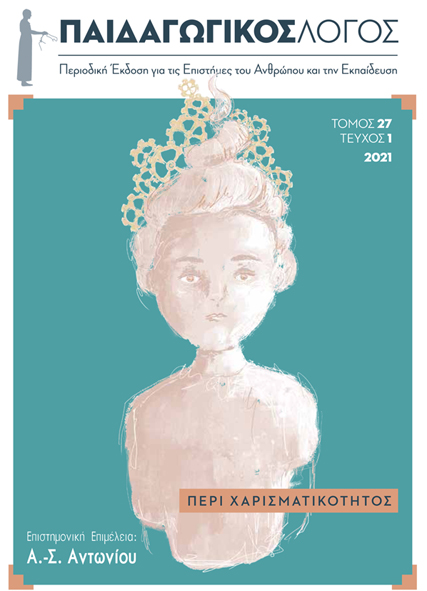Impact of level of perfectionism on psycho-emotional and cognitive characteristics of children with high academic performance

Abstract
An increasing number of research findings have associated the presence of perfectionism in children and adolescents with difficulties in school and social adjustment as well as other accompanying problems, including intense psychological discomfort and high stress levels. More specifically, children with high academic performance display the tendency to focus on perfection, whereas they criticize themselves rigorously by perceiving even a minor flaw as proof of failure. Perfectionism usually relates to two primary categories: self-oriented and socially-prescribed perfectionism. Both forms of perfectionism have an impact on a child’s academic performance. With regard to the emotional consequences of perfectionism, there are reports of increased levels of fear and melancholy as well as an association to stress, depression and psychosomatic symptoms. Moreover, children with high levels of perfectionism are characterized by a continuous concern on their school performance and their marks but also by a high degree of competitiveness towards their classmates. This is further augmented by the intense and constant inclination to self-criticism originating from the image these individuals wish to present to others. A key research finding is the high positive correlation among perfectionism, depression and social stress, the degree of social support from their environment and the coping strategies adopted on stressful situations and dealing with social problems.
Article Details
- How to Cite
-
Αντωνίου Α.-Σ., & Ξυπολιτά Ε. (2021). Impact of level of perfectionism on psycho-emotional and cognitive characteristics of children with high academic performance. Pedagogikos Logos, 27(1), 165–181. https://doi.org/10.12681/plogos.27927
- Section
- Articles

This work is licensed under a Creative Commons Attribution-NonCommercial-NoDerivatives 4.0 International License.
Οι Συγγραφείς που δημοσιεύουν εργασίες τους σε αυτό το περιοδικό συμφωνούν στους παρακάτω όρους:
- Οι Συγγραφείς διατηρούν τα Πνευματικά Δικαιώματα και χορηγούν στο περιοδικό το δικαίωμα της πρώτης δημοσίευσης, ενώ ταυτόχρονα τα πνευματικά δικαιώματα της εργασίας προστατεύονται σύμφωνα με την χρήση άδειας που υιοθετεί ο «Παιδαγωγικός Λόγος - Περιοδική Έκδοση για τις Επιστήμες του Ανθρώπου και την Εκπαίδευση» : Αναφορά Δημιουργού – Μη Εμπορική Χρήση – Όχι Παράγωγα Έργα 4.0 (CC BY-NC-ND). Αυτή η άδεια επιτρέπει στους άλλους να έχουν πρόσβαση στο έργο και να το μοιράζονται με άλλους, εφόσον κάνουν αναφορά σε αυτό, ωστόσο δεν μπορούν να το αλλάξουν με κανένα τρόπο ούτε να το χρησιμοποιούν για εμπορική χρήση.
- Οι συγγραφείς μπορούν να συνάπτουν ξεχωριστές και πρόσθετες συμβάσεις και συμφωνίες για τη μη αποκλειστική διανομή της εργασίας, όπως δημοσιεύτηκε στο περιοδικό αυτό (π.χ. κατάθεση σε ένα ακαδημαϊκό καταθετήριο ή δημοσίευση σε ένα βιβλίο), με την προϋπόθεση της αναγνώρισης και την αναφοράς της πρώτης δημοσίευσης σε αυτό το περιοδικό.
- Το περιοδικό επιτρέπει και ενθαρρύνει τους συγγραφείς να καταθέτουν τις εργασίες τους μέσω διαδικτύου (π.χ. σε ένα ακαδημαϊκό καταθετήριο ή στους προσωπικές τους ιστοσελίδες) πριν και μετά από τις διαδικασίες της δημοσίευσης, καθώς αυτό μπορεί να οδηγήσει σε παραγωγική ανταλλαγή ιδεών και σκέψεων, καθώς επίσης και σε γρηγορότερη και μεγαλύτερη χρήση και ευρετηρίαση της δημοσιευμένης εργασίας


